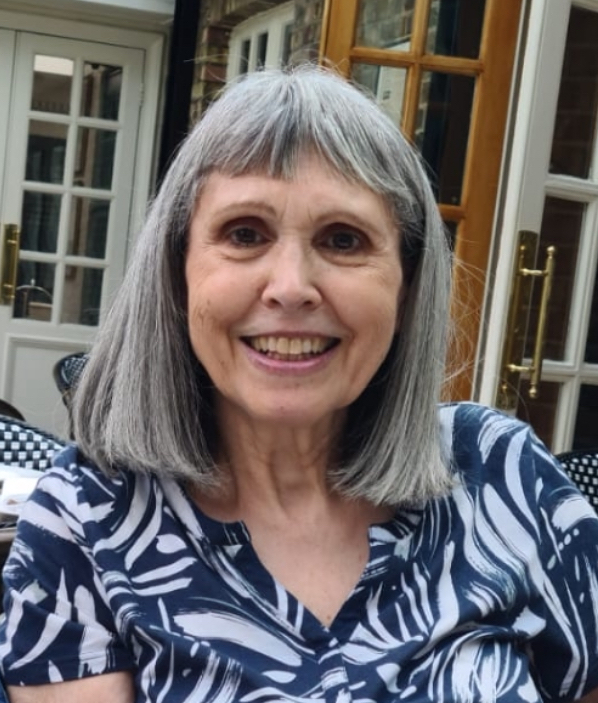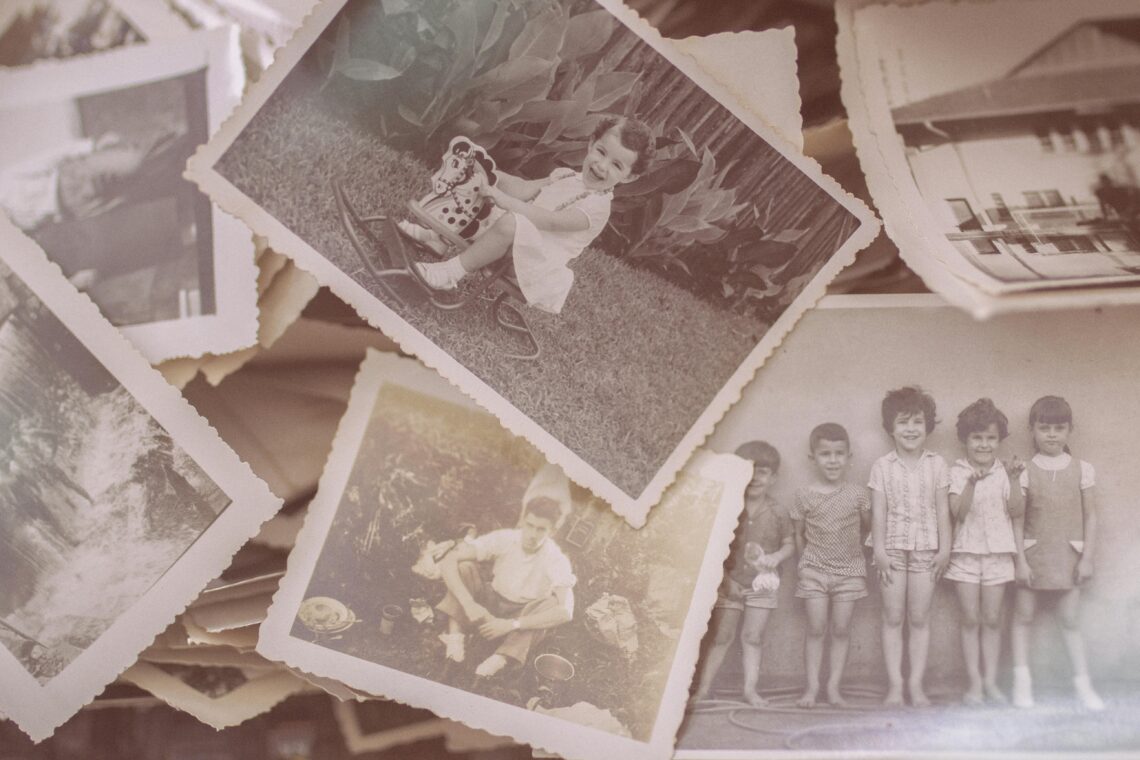by Jennifer Sinclair Roberts
She was the storyteller. Not me. She had an ability, a facility, a knack for making a story out of scraps, the way that a natural cook might put together a feast.
It was a skill that couldn’t be learned, although I tried hard enough. Her stories were so beguiling, so funny and sad that no-one cared if they were true, or just true to life. Stories that made you nod in recognition, and smile, and sigh, whether you were nine years old or one hundred and nine, like the great-grandfather who outlived all his children and was buried by his grandchildren.
What I envied most were the endings. I’ve never been good at endings, but hers were like lines of poetry, each complete in itself, but leading on. Death is decisive, she told me, all other endings are messy.
She was the storyteller who told of great-aunt Rachel’s unhappy marriage and the names of her five children, and how she died at forty-six and her weak, foolish husband was ensnared by their maid, who spent all the children’s inheritance and went to her own grave with a smile on her face. Of the great-uncle who was so cruel and unloved that when he died, his brothers wanted to bury him upside down so that if he tried to dig his way out, he would just go deeper. Of the great-aunt who married into wealth and wore furs and diamond earrings like chandeliers, but refused to give so much as a hot meal to her penniless sister’s family in their freezing tenement. Of the fragile, exquisite young cousin sent to a mental asylum, who never came back, and died.
Timing is everything, she told me; it shapes your life. When I was young, I thought of this as a warning: if I overslept on the day of my university finals, like my cousin Paula, I would fail my degree and have nothing to show for three years of study and be forced to learn shorthand and work as a lowly assistant to someone the same age as me, but who had carefully set their alarm on finals day. But later, I understood that she was talking mostly about love: who we meet and who we don’t. Who walks beside us for a day, or for life. Who finds us at the right time, or arrives at the wrong time. Too soon or too late and there: you have both missed the greatest experience you might have had, ever.
So, time and death, and love and loss and serendipitous magic were all stirred into in her stories, the myriad stories I heard with great delight but less attention, so that later, I wished I had made notes. She was the storyteller, and it was only when her memory began to fail that the stories too began to disintegrate.
Aunt Sarah married Manny, she said, or…was it Morris… but anyway, he was a scoundrel… and their older son…or maybe the younger one, eloped with a dancer to Argentina, and they went to live in Clacton, she had arthritis in her hands, couldn’t even hold a spoon. Rachel died young, you know, not even fifty…but Esther! Oh, what a beautiful girl, with her long red hair, locked up in that loony bin. Fell out of bed? Who dies from that? No. My Joe was a true gent, he went too soon, well, we all come to an end but the thing about death is, it’s so final, she said.
Yes, death is decisive, I said, but she didn’t react, just sat rearranging her hands as if trying to thread beads onto a string.
I’m hopeless at endings, even though I saw this one coming from a long way off, like a speck of darkness on the horizon that grows and grows until it becomes an army, loaded with tanks and guns. There was no defence. I sat beside her as afternoons faded. Summer showers, winter dusk. Now she had nothing left, only shreds. The leftover peelings of stories.
That nurse, cold hands, I don’t like her. Where’s Mum? Where’s Joe? When am I going home? I don’t like this room. She was so beautiful. Cup of tea. Where’s Joe? When is he coming? Red hair down to her waist. You tell them. You tell them. I want to go home today. Where’s Mum? That nurse is rough with me. I don’t like it here. Who dies falling out of bed? Why am I here? When can I go home? Where’s Joe? But when is he coming? Cup of tea. Cup of tea.
When the words dropped away her body continued its story, blood stiffening and thickening, face evolving to skull, limbs to skeleton, skin fissured with bruises and bedsores although the nurses turned her, turned her. And two days from the end, a Rabbi arrived, wearing a soft black hat and suit, a stranger on a holy mission. He was young, under his beard and his old man’s clothes, and he stood by her bed telling her that old story about how the end is also a beginning. But she was deeply unconscious, and I said quite mildly that I believed death was decisive. A full stop.
He smiled, he was a good man, a compassionate man, I think she would have liked him, and he said now I will recite a Psalm, I lift up my eyes to the hills and so on. He began, his young voice rising and falling soft as a Hebrew breeze across her head. ‘Drinking Ducks’ she used to call them, those men who prayed, the Orthodox men, chanting and swaying in the synagogue, their heads bobbing up and down, up and down, like the mechanical toy, and she would laugh. She believed in God, but not in them. I tried to remember the story she told about a Drinking Duck, but it was too late. She was the storyteller, not me.

Jennifer Sinclair Roberts lives in London and is enjoying her second life as a writer of short fiction and poetry. Her early work was published in various magazines before she took a long pause to prioritise family and career. Now retired, she is excited to be back. She was a Highly Commended finalist in the Mslexia Flash Fiction competition 2023.


